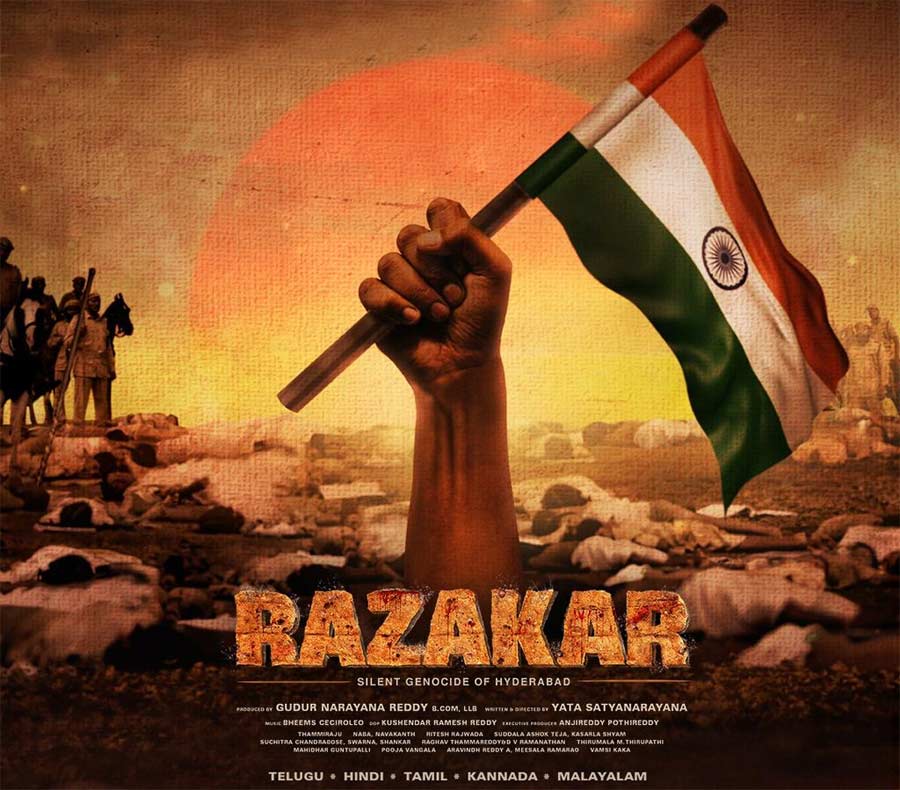BRS gives a call to reject Razakar
BRS Call to reject Razakar

BRS gives a call to reject Razakar. As the release date for the Telugu movie "Razakar" approaches, anticipation is accompanied by a backdrop of heated debates among politicians, fueled in part by the film's controversial trailer. Gudur Narayana Reddy, a prominent Bharatiya Janata Party (BJP) leader and the film's producer, shed light on the challenges faced by his team, attributing delays to the previous Bharat Rashtra Samithi (BRS) government.
Scheduled for release on February 2, 2024, Reddy revealed in an interview with ANI on Friday that the previous government had indirectly impeded the film's progress, causing delays exacerbated by his own electoral commitments. Now, with those challenges behind them, Reddy expressed optimism about the smoother journey ahead.
Highlighting the film's multi-language release strategy, Reddy mentioned that "Razakar" will be available in Telugu, Hindi, Marathi, Kannada, Malayalam, and Tamil. He urged the audience not to harbor negative perceptions, emphasizing that the film serves as a historical portrayal rather than an affront to any particular community.
"I would like to categorically state that this movie is not against any particular community. This is history in the form of cinema," Reddy clarified, urging viewers not to jump to negative conclusions about the depicted events.
Delving into the historical context, Reddy outlined the movie's focus on a critical period—from August 15, 1947, to September 17, 1948—culminating in the liberation of the Nizam's princely state from the Razakars. He emphasized that the entire cinema encapsulates the 396 days that led to this pivotal moment.
The controversial two-minute trailer, released on September 17 (Hyderabad's liberation day), presents explicit details of alleged brutalities and atrocities by Razakars during Nizam's rule. It includes controversial dialogue and sensitive scenes that have stirred strong reactions.
In response to the trailer, BRS leader K Kavitha called on the people of Telangana to 'reject' the movie, citing concerns about potential communal tensions. Despite these challenges, Reddy remains steadfast in his commitment to presenting historical events through the lens of cinema, urging a nuanced and open-minded approach from the audience.




 Dhootha continues to be trending top for two weeks
Dhootha continues to be trending top for two weeks Hi Nanna breaches $1.5 million at the US box office
Hi Nanna breaches $1.5 million at the US box office